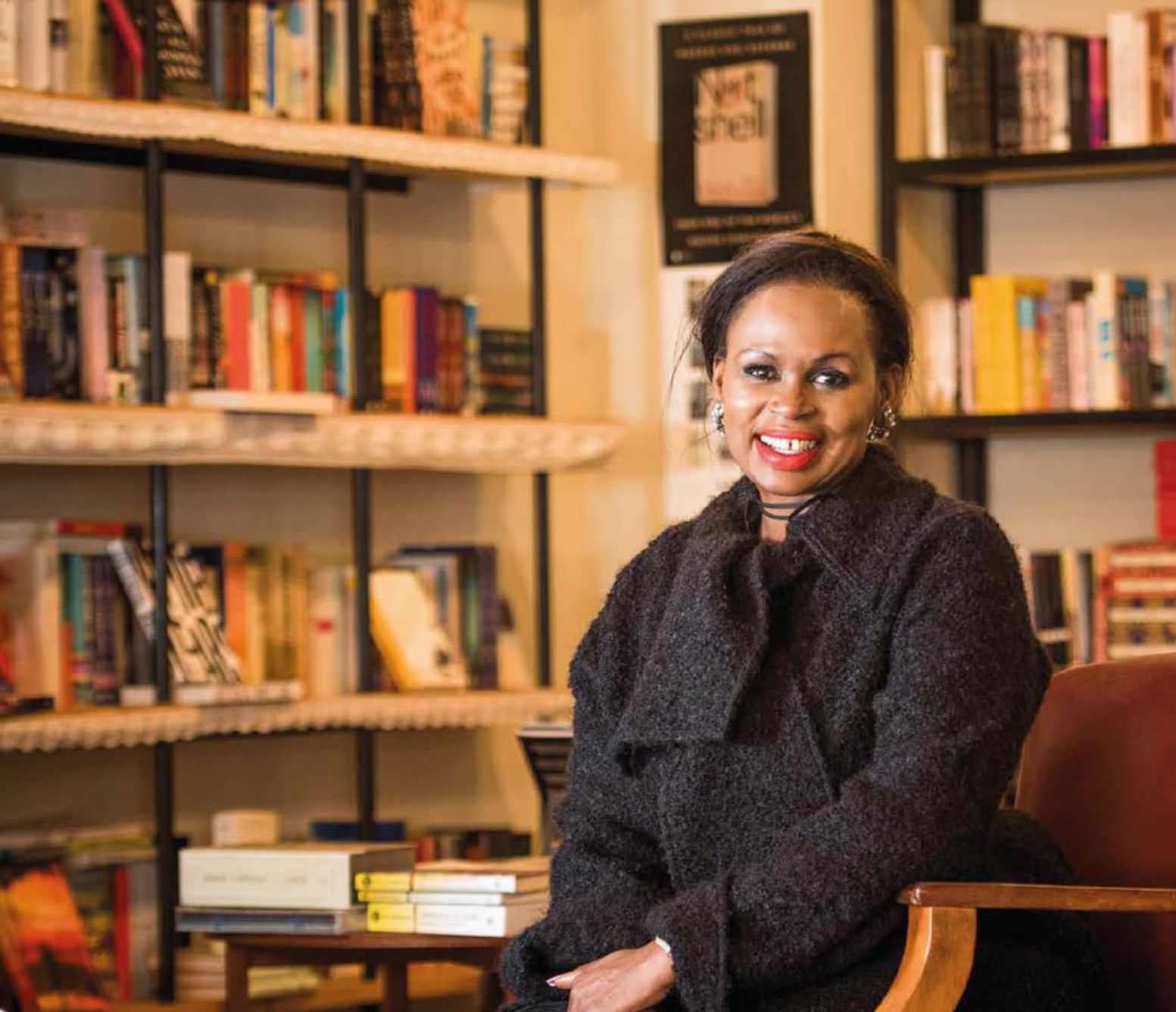By PRASHALAN GOVENDER
Everyone has battles, but most people fight those battles privately. Thandeka Gqubule-Mbeki, on the other hand, has fought many of her struggles publicly.
Gqubule-Mbeki’s path to journalism started in the primary stages of her education. Gqubule-Mbeki said she was never an academic standout but did have an affinity and talent for languages which she refers to as “a sensitive gift for expression”. She found her gift at two schools; the first was Lovedale Missionary School which she holds in the highest regard because of its historical significance. The second, Epworth (in KZN), is also dear to her because of its motto, ‘Fida Humana Fortis’, which translates to faith, compassion, and courage. Gqubule-Mbeki views these principles as foundational and why she proudly identifies as an ‘Epworth girl’.
Despite finding and nurturing her gift in primary and high school, Gqubule-Mbeki first studied law and politics at Wits University. However, after an arrest for protesting stopped her from completing her degree there, she decided to pursue her talent for writing and speaking by training at The Weekly Mail. During her time at The Weekly Mail, she got the opportunity to further her studies at Strasbourg University in France. She later attended Columbia University in New York to do her Master’s in journalism.
Now thoroughly versed with the ways of the world and knowing all that one could know about journalism, Gqubule-Mbeki made her way into the workforce and eventually found herself at the SABC – a place associated with one of the most turbulent times in her life and the history of South African broadcasting.

At the SABC, Gqubule-Mbeki was thrust into the spotlight and became part of the ‘SABC-8’, referring to the eight journalists who went against the corporation’s then COO, Hlaudi Motsoeneng, who implemented a policy not to broadcast any violent protests.

Awe-inspired by her defiance of censorship, I blurted out, “YOU ARE ONE OF THE ‘SABC-8’!”.
She smiled warmly and explained her courageous defiance with the utmost humility. “You know how it started?” she asks rhetorically. “I was in a meeting when what I was hearing was that we should shut down the voice of the poor. They didn’t want us to cover the protests of the poor and said that cameras encourage violent protests”. Recognizing what she was hearing as “nonsense”, Gqubule-Mbeki remembers thinking, “How can you mute the public voice when journalism is meant to amplify it?”
After pondering what she was hearing, she kept her composure and said that she wanted her disapproval of the proposal not to cover protests noted. Her dissent could be attributed to a myriad of reasons: her Epworth principles, her unparalleled knowledge of journalism and the Constitution, or her lineage (Gqubule-Mbeki’s parents both fought for freedom). Regardless of the reason, what is indisputable is that she resisted changes that would limit freedom of the press.
For her resistance, she was fired. This opposition made her part of the ‘SABC-8’ and was her first substantial battle with SABC. The second happened last year when she resigned in protest of what she alleges was “fraud and corruption” at the SABC. Because she quit, SABC couldn’t retaliate by firing her; thus, they publicly accused her of misconduct.
Gqubule-Mbeki says the retaliation in both instances was gender specific, “When a man opposes something, his opposing argument is addressed, not him as a person. The issue may be addressed unkindly; people may even bully (a man). But, if you’re female, the rebuttal is more personalized; they get into your private life, malign you, and talk about how emotional you were or weren’t”.
However, Gqubule-Mbeki chose to view these times as teachings rather than a reason to quit. “[My troubles] brought a lot of insight and personal growth – you will never know how strong you are until you have been tested, and you will never know what you really think until you have been viciously opposed”.
After introspection, she decided on her next chapter of public service: teaching. Gqubule-Mbeki is now a third-year TV lecturer at Rhodes University’s School of Journalism and Media Studies. She loves to teach because she had great teachers growing up and knows the value of imparting knowledge to others. “I’m in such a hurry to tell my students every single thing I know that sometimes they have to tell me ‘Thandeka, Thandeka! Stop! Time is up’.”
“I also love interacting with young people and having a second youth as I am a novice again. I may be senior in the corporate world, but I am still small in the world of academia.” Her observations that schools and universities are rapidly becoming diverse and that there is an increasing female presence in newsrooms have made her hopeful for the future. “This generation is different from mine,” she said.
A big part of this current chapter in her life is, well, a book.
With a working title Muting the Public Voice, the book will be, among other things, about “the many different ways in which we went awry at the public broadcaster – how we seemed to shut down the public voice when we should have been affirming it”.
After passionately telling me about her book, I lightheartedly say, “Seems like you still got a lot of fight left in you”. “Well, yeah”, she replies humorously. It’s exciting to know that after nearly four decades of fighting the good fight, Thandeka Gqubule-Mbeki is showing no signs of slowing down. Especially since history and her black Prada Tote are good indicators that her upcoming battles will be as sharp and stylish as ever.



